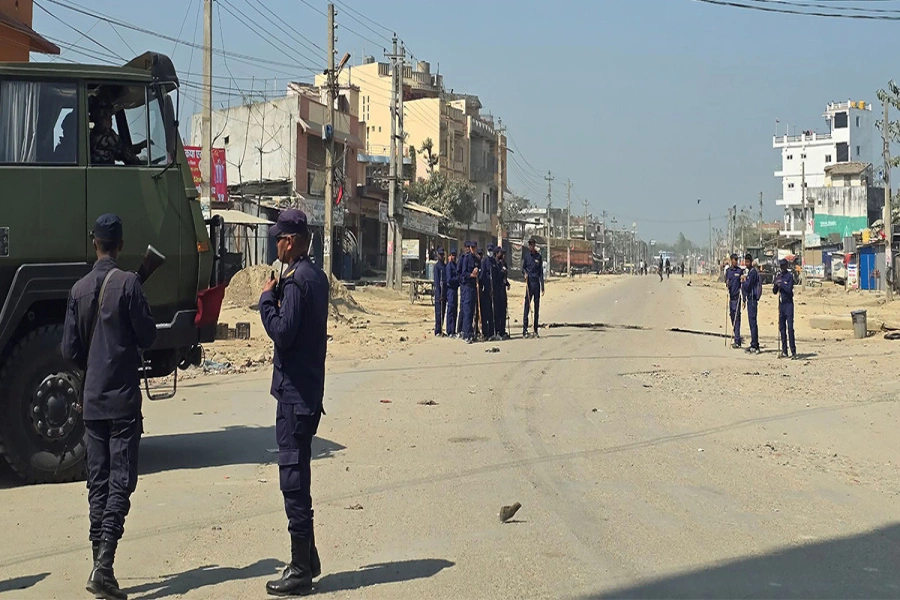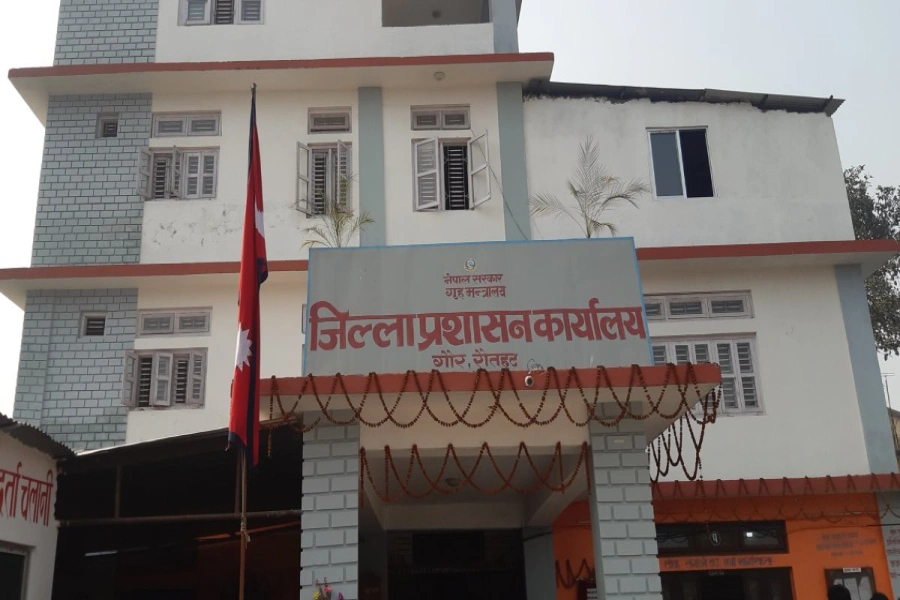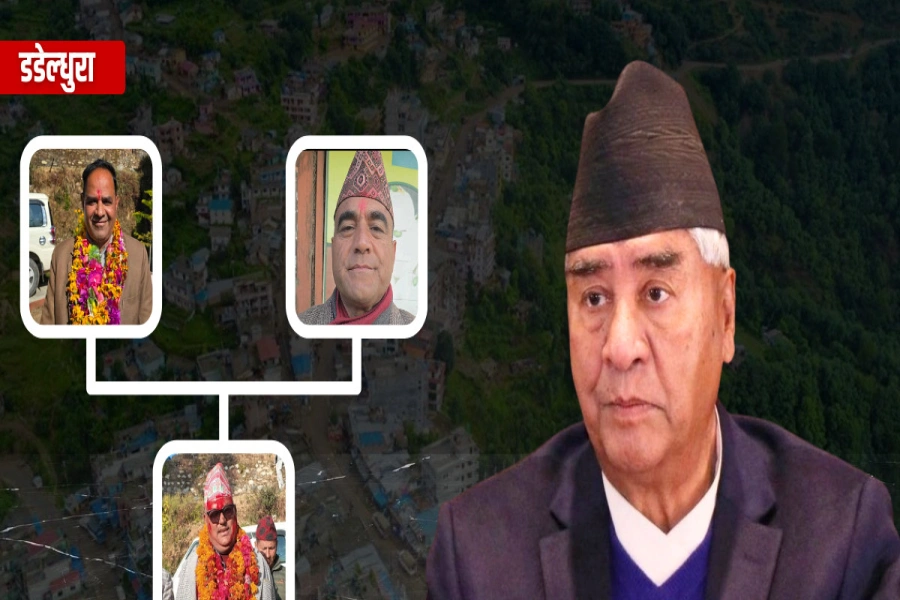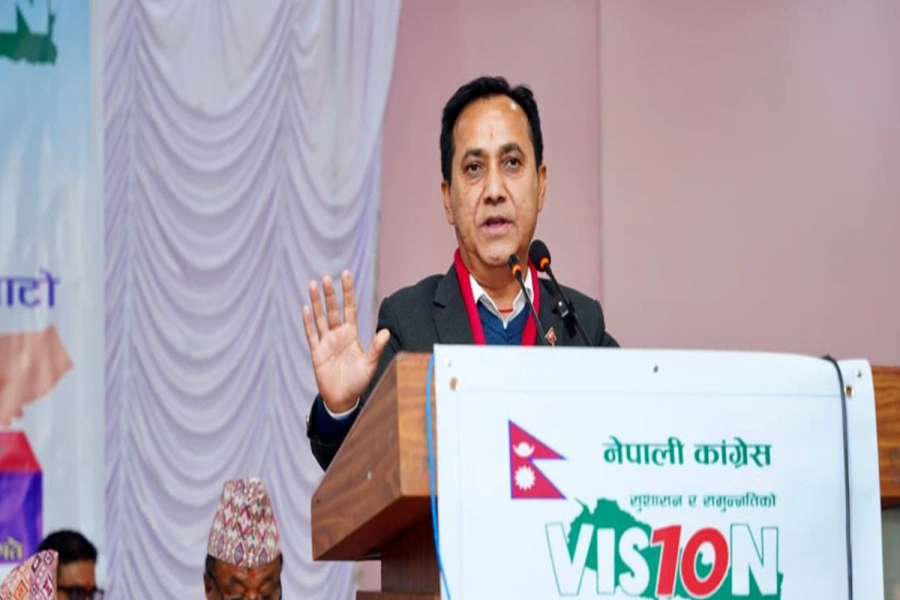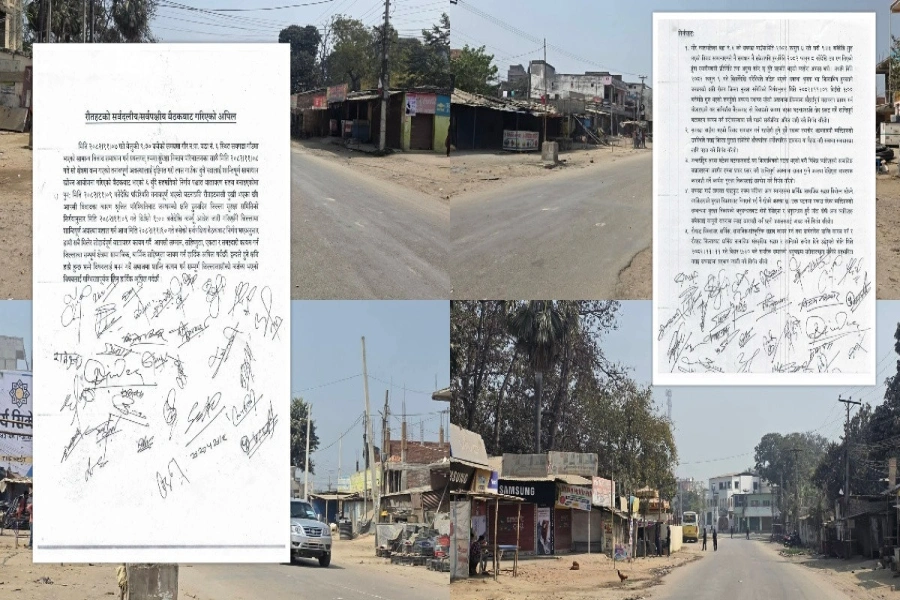We are sitting on the foundation of that single incident of the King’s speech on Chaitra 26, 2046. That is the date on which this whole democratic system of Nepal was founded
Chaitra 26, 2046 (April 8, 1990). If I asked, does the date remind you of something? Most young people will respond with a 'no'. Some older people might remember as something did happen but not exactly sure what it is. It is possible its importance is masked by so many other important incidents that took place in Nepal, since then. For me, it is special.
It takes me thirty years back in memory, to the time we were in the USA. To be exact, that is the date, the King announced the restoration of democracy in Nepal, through a radio speech. I still remember coordinating the recording of the speech over the phone, live, to share it with the Nepali community there. At the time, there were about thirty Nepali families in Boston, Massachusetts. Recording the speech, sharing it, and rejoicing with our friends feels like yesterday to me despite the fact that 30 years have already passed. Along with this come other memories leading to that situation and beyond.
17 banks reduce interest rates for Chaitra except for NIC Asia...

In 1990 I was still working at Cambridge Rindge and Latin High School, as Media Specialist, at the Teachers’ Resource Center. We had recently received an internet connection at our office, and I was responsible for figuring it out for the benefit of our resource center. My first attempt was to find news from Nepal. On the first day, I found some news reporting from the Reuters. After that, it became my regular job first thing in the morning, to find news from Nepal and print it, to bring home to share with my husband. That was our lifeline to Nepal because calling home was still very expensive. We felt a little informed. Initially, there were one or two news items covered, but gradually, it started increasing.
One day, there was news coverage in the local news channel that said trouble in the Himalayan Kingdom of Nepal. As soon as I heard that, I ran from our bedroom to the living room, to catch the news. In the process, I bumped my leg with the sharp edge of the wall and fractured my little toe. I was too excited listening to the news, to realize the damage done to my toe. The next day my foot had all colors of blue, purple and yellow. I went to the office only to be sent back, with advice to stay home and rest my leg for another week. This shattered my only connection to Nepal during this crisis period.
I was frustrated. I pulled out the latest news that I had printed and looked for a phone number. Luckily, there was a number on one of the printouts. I called the number hoping to get some news from Nepal. I was directed to their Asia desk. Upon contact, I requested the person to share news from Nepal. Situations started deteriorating in Nepal, and I called Reuters every four hours, for the news update. By that time most of our family members were already in jail. For two days, the people at Reuters were fine, but on the third day, a person became irritated and yelled at me. He asked me very rudely as to why I cared about news from Nepal.
I too became angry. I told him, as most of my family members were in jail, it was natural for me to attempt to find out more about their wellbeing, and Reuters was my only source of information. At that point, the person understood my urgency. He asked me to hold on the phone, and connected me to the main person, at Reuters Asia desk. After our conversation, he gave me a direct number for news updates. Soon after, they also established the Nepal desk. Now communicating with Reuters was much easier. If I had new news, I passed on to them, and if they had any news, they regularly provided me. I, in turn, disseminated the news to our friends in the USA. Gradually, I became the main person disseminating news, regarding the movement for the restoration of democracy in Nepal.
Sometimes, the people from Reuters called me with news updates, if I was late calling them. I had become very friendly with Reuters. I even gave them the date and time of the King’s address. After the King's speech, times changed.
Negotiations had started, and there were rough times. Eventually, government formation was taking place. The night before the interim government was announced, we talked to baba, my father. He told us about the composition of the new interim government led by Krishna Prasad Bhattrai. Later, we called Kishun Ji kaka, as I used to call K. P. Bhattrai, and raised my concerns, regarding the upcoming ministry. I told him to choose people that he trusted and could work with. By now, my contact with Reuters had decreased considerably, as everyone was out of the prison, and the interim government was on the verge of being formed, there was not much to worry about.
The next day at around 8:00 in the morning the main person from Reuters called me and said, ‘Congratulations! Your father is the home minister in the interim government led by Mr. K. P. Bhattrai. I just called to congratulate you.’ And he hung up. I can still remember his animated voice while relating the news to me.
I was shocked. Never in my dream had I imagined that baba would become a home minister. I was very excited. I told my husband the news, and he informed the others. We were preparing to celebrate the day with our friend, who lived in the same apartment complex. He came down with his wife and we started cooking lunch our Nepali style. That lunch was as memorable because my cooking did not stop till 5:00 in the evening. Lunch turned into dinner, as more people came to congratulate, and insisted on sharing lunch with us. I kept cooking. I think I finished all the vegetables I had brought for the week. Cooking one at a time whichever ran out, Bhaat, Daal or Tarkari. It was fun.
I still remember the incidents vividly as if everything happened yesterday, but 30 years have passed. Just a date reminded me of all these incidents. I was pained to see that most of the online papers had forgotten about the significance of the date. I understand, priorities have shifted, but one fact remains, and that is we are sitting on the foundation of that single incident of the King’s speech on Chaitra 26, 2046. That is the date democracy was reincarnated in Nepal. That is the date on which this whole democratic system of Nepal was founded. It is too important a date to forget.
Usha Pokharel is an educationist and author of several children’s books






